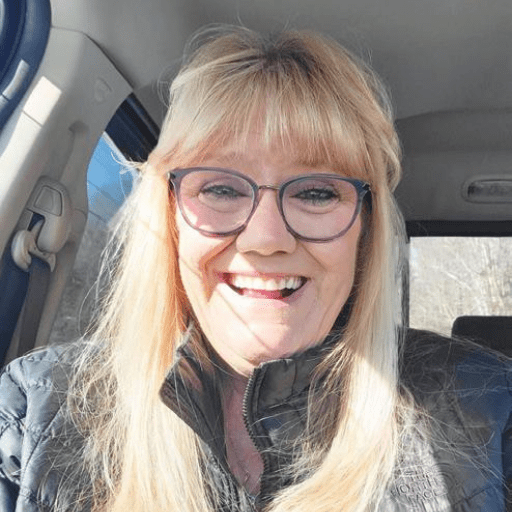For most people, working the graveyard shift is not a first choice.
But for Wendy Ayres of Waldo, working nights in a residential substance use treatment facility is exactly her first choice. When you meet Wendy, it’s hard not to be drawn to her warm laugh and positive personality, and the more you get to know her, the more you understand where her incredible well of compassion comes from.
At a very early age, Wendy experienced abuse and trauma. By 17, she had followed her relatives in becoming a heavy drinker.
When she moved to Texas to join the military, she met her husband, who introduced her to a greater love, methamphetamines. Her 22 years in Texas were consumed by drug use, and even after leaving her husband, she found herself in the downward spiral of addiction.
This chaos led to two separate instances of incarceration, the second of which changed her life forever. It was while attending recovery meetings in prison that Wendy realized she had to return home to Maine and rebuild her life.
At 41, she came back to Maine and fought hard for a job that would support her and her daughter. With seven felony drug charges on her record, this was very difficult.
“No one thinks you’re going to make it. They don’t even want to give you a chance.”
Wendy’s saving grace was a government tax break for businesses that provided incentives to hire people with felony charges who were freshly released from prison. This tax break and her determination landed her work at a lumber mill, where she proved doubters wrong for eight hard years.
Everyone’s recovery looks different, and for Wendy, recovery meetings weren’t the form of community she wanted. Instead, she found her healing in pursuing a degree in mental health and substance use. Learning about the science of the brain and addiction gave her answers to the “why’s” she had been looking for.
“People in recovery aren’t just junkies, they’re people,” she said. “They’re someone’s son or daughter who has made bad decisions. Everyone makes some bad decisions, but some of our brains are wired differently and predisposed to addictive behaviors.”
While finishing her degree, she found a job that she felt was made for her. In 2015, Wendy began working at McLean Hospital’s Borden Cottage in Camden, a residential treatment facility for people with co-occurring disorders.
“I knew that if I could help even one person, it would all be worth it. That’s a life. That’s all that matters,” Wendy said. She still works there today on the overnight shift, often exactly when someone needs a kind listening ear and the wisdom of someone with almost 18 years of experience in recovery. She also works nights so that she can take care of her grandson during the day.
One of Wendy’s daughters is also navigating recovery. With her family, Wendy strives to provide a supportive environment like the one she had when she came home to Maine.
“I will be in recovery for the rest of my life. I work hard every day for my recovery. We do recover.”
When asked what the community should know about recovery, Wendy answered, “People who use are already in a terrible cycle of guilt, and you feel like you can’t live with that guilt or yourself day to day. You’re running from the feelings you have, and people judging you or expecting failure only make that worse.”
Wendy said more programs are needed to “catch” people coming directly out of prison who have substance use disorder, and more incentives are needed to encourage businesses to give them a chance without judgment.
“Addicts don’t need jail, they need therapy. They don’t need guilt, they need hope. Give them a chance. It may be the chance they need to change everything.”



